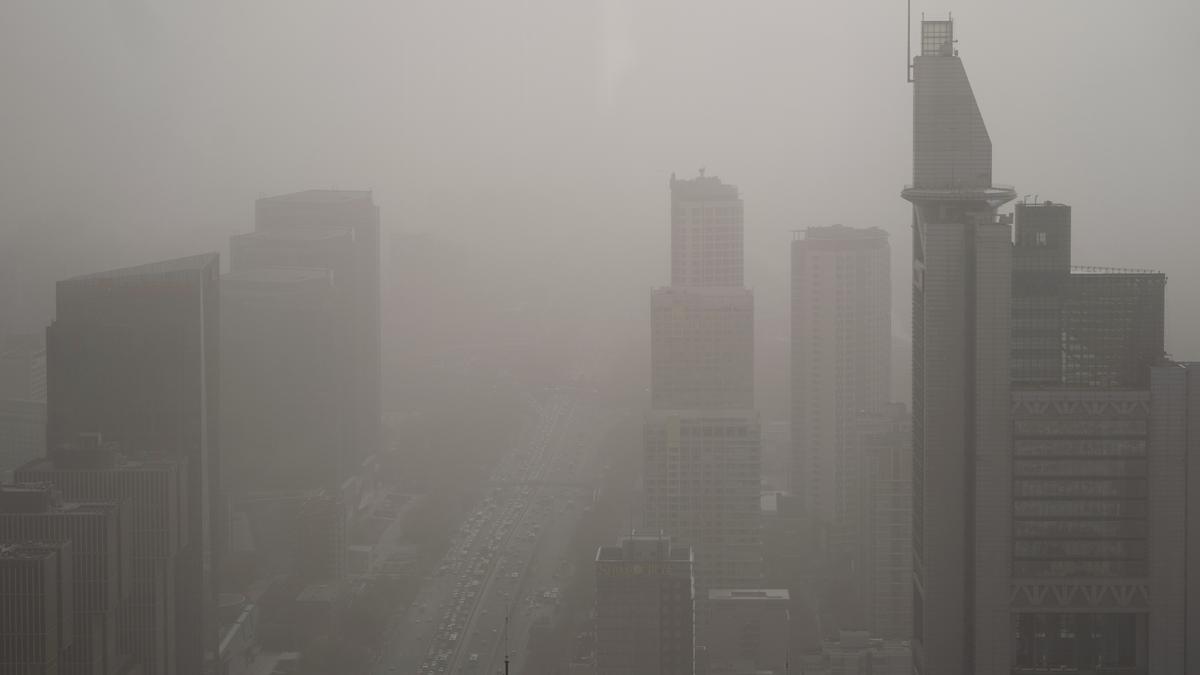
China proposes new target for better air quality
The Hindu
China aims to reduce the national average concentration of fine particulate matter, a measure of air quality, to less than 28 micrograms per cubic metre by 2027 and less than 25 micrograms by 2035.
China has proposed new targets for improved air quality as part of its green and low-carbon development, state news agency Xinhua reported on January 11, although the targets are still above a limit recommended by the World Health Organization (WHO).
Chinese cities have grappled with high air pollution readings in recent months despite authorities' efforts to improve air quality in recent years.
The country aims to reduce the national average concentration of fine particulate matter, a measure of air quality, to less than 28 micrograms per cubic metre by 2027 and less than 25 micrograms by 2035.
China previously set its national "interim" air quality standard at 35 micrograms per cubic metre, well above the 5 microgram limit recommended by the WHO.
The proposal outlined areas including the Beijing-Tianjin-Hebei region and the Yangtze River Delta as a "key battlefield", where it will focus on controlling the amount of fine particulate matter and vigorously reduce the emission of multiple pollutants.
It will also promote an ultra-low emission upgrade for steel and cement manufacture along with other high-emitting industries.
The world's top carbon emitter reinforced its goal to achieve carbon peak by 2030 and carbon neutral by 2060.

The 29th edition of the Conference of Parties (COP29), held at Baku in Azerbaijan, is arguably the most important of the United Nations’ climate conferences. It was supposed to conclude on November 22, after nearly 11 days of negotiations and the whole purpose was for the world to take a collective step forward in addressing rising carbon emissions.










